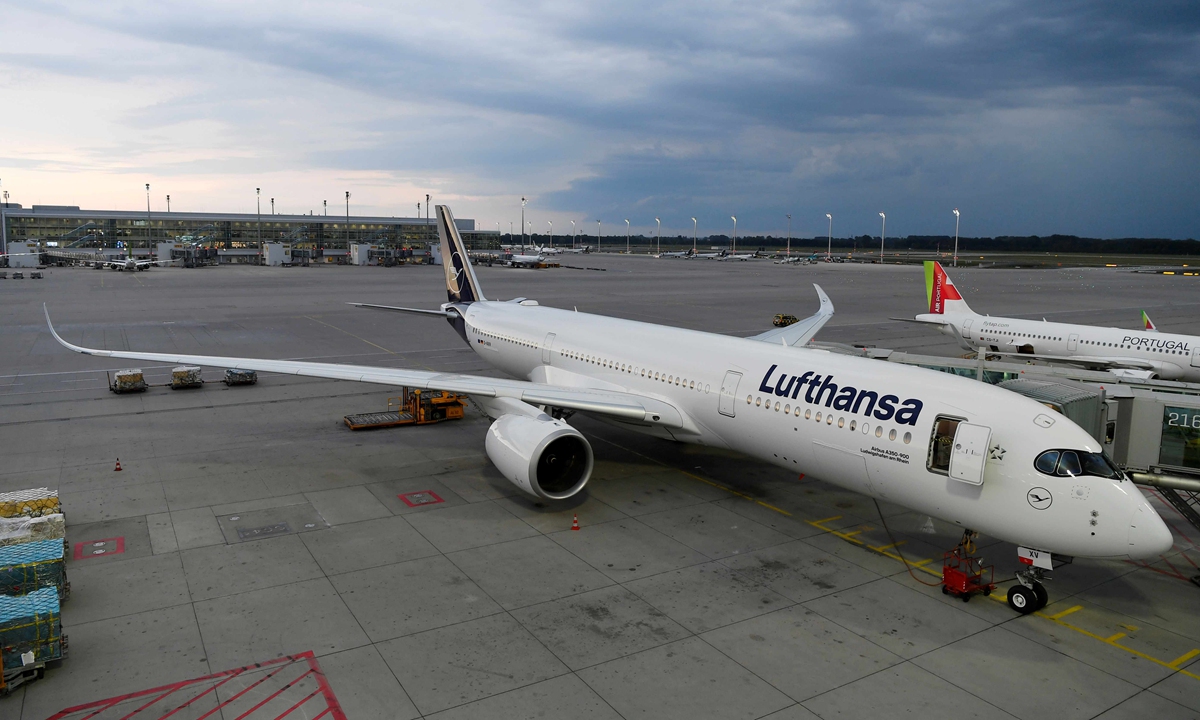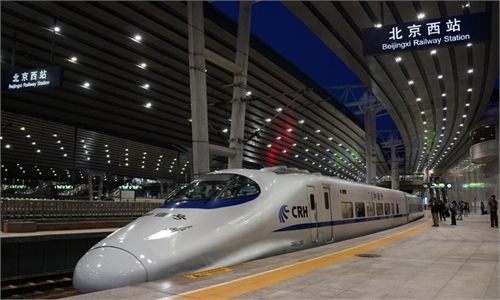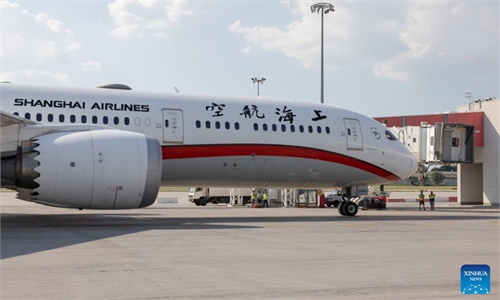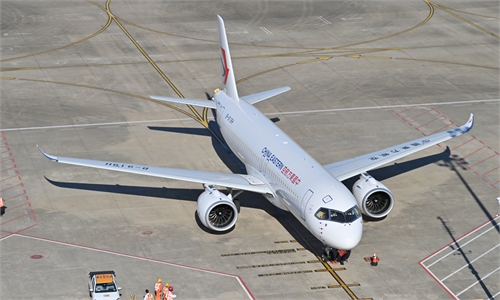German airline believes in the long-term recovery of travel between China and Europe

Lufthansa A350-900 parks at Munich airport and is ready for the Asia Premiere on August 14 in Munich, Germany. Photo: Courtesy of Lufthansa Airlines
"We believe in the long-term recovery of the market for air travel between China and Germany and between China and Europe," Jens Ritter, CEO Lufthansa Airlines told the Global Times on Thursday, highlighting the importance of the Chinese market for the European carrier.
The statistics from European tourism offices in Germany, Switzerland and elsewhere show that the numbers of overnight stays by Chinese visitors are back at their pre-pandemic levels, Ritter said. And with visas no longer needed to enter China, more and more western travelers are keen to visit China, for sightseeing and business travels, he added.
"In terms of post-pandemic travel between China and Germany and between China and Europe, we believe in the long-term recovery for these markets," he said.
Lufthansa flight LH726 with Allegris onboard took off on Wednesday at 10:15pm from Munich to Shanghai. Following Vancouver, Toronto and Chicago, Shanghai becomes the fourth Allegris destination worldwide and the first one in Asia.
Allegris products are now available on Munich-Shanghai route with the aircraft type A350-900. It consists of 38 seats including eight suites in Business Class, 24 seats in Premium Economy Class, 201 seats including 22 seats with more legroom in Economy Class.
Shanghai has become the first Allegris destination in Asia. "We aim to further enhance the customer experience onboard and strengthen our leading position as the largest European carrier in China," Ritter said.
Since January 8, 2023, Lufthansa Group has steadily resumed flights to China, resuming direct flights to Munich in April and July last year that were interrupted due to the pandemic.
As part of its 2024 summer schedule, it offers a daily direct connection from Munich to Shanghai and Beijing. Altogether the German flagship carrier provides 40 weekly flights from Germany to China in August 2024. Compared to August 2023 Lufthansa has increased its weekly frequencies by more than 70 percent.
The increase in travel came along the robust trade between the two countries. Financial Times reported on Tuesday that German direct investments in China have risen sharply this year, including 2.48 billion euros ($2.73 billion) in German capital deployed in the country over the first three months of 2024, rising to 4.8 billion euros in the second quarter. That brings the total for the first half of 2024 to 7.3 billion euros, compared with 6.5 billion euros for the whole of 2023.
Data from the German Federal Statistical Office showed that in 2023, China has been Germany's most important trading partner for eight consecutive years. Germany has been China's largest trading partner in Europe for 49 consecutive years.
China's Ministry of Commerce also said that the trade volume between China and Germany accounts for one-third of the total trade volume between China and Europe, and Germany's investment in China accounts for one-third of the EU's investment in China.
In addition, visa-free entry to China has provided new impetus to the recovery of the China-Europe travel market, and the summer holiday season is at its peak.
On May 7, China announced the extension of its visa-free policy to December 31, 2025, for citizens of France, Germany, Italy, the Netherlands, Spain, Malaysia, Switzerland, Ireland, Hungary, Austria, Belgium, and Luxembourg, to promote exchanges between Chinese and foreign nationals.
Ritter said that Europe has been an especially attractive tourism destination this summer. "In addition to all the usual sights, we've also had major events such as the Euro football tournament in Germany and the Paris Summer Olympics."
During the Olympics, average airfares from major Chinese cities to Paris have increased by over 10 percent compared to June. The most popular departure cities for travel to Paris and other major French destinations include Shanghai, Beijing and Guangzhou, according to online travel platform Tongcheng Travel.




